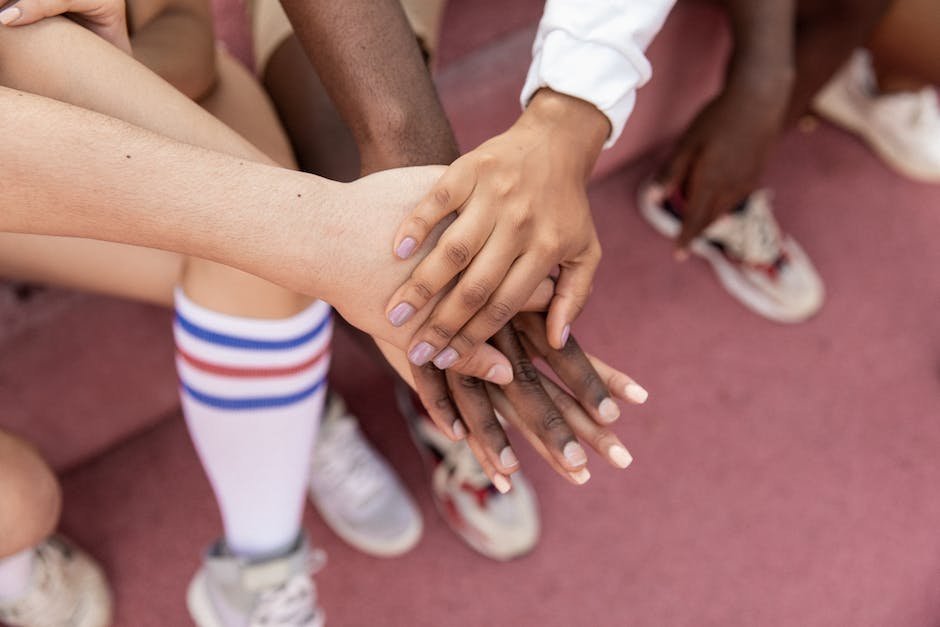There’s something undeniably addicting about the captivating game of pickleball, an amalgamation of tennis, badminton, and table tennis. As you step onto the vibrant court, paddle in hand, you can feel the anticipation mingling with the gentle breeze, ready to engage in delightful exchanges and spirited volleys. But amidst the thrill of the game, there lies an unspoken code of conduct, a hidden language of courtesy and camaraderie. This article delves into the realm of pickleball’s social etiquette, unveiling a vivid tapestry of dos and don’ts that transcends skill level and echoes a simple yet profound message: “Don’t be that guy.
Table of Contents
- The Social Etiquette of Pickleball: Don’t Be That Guy
- The Importance of Respectful Court Behavior
- Navigating Conversations and Distractions
- Understanding Proper Call-Outs and Line Etiquette
- Paddle Tapping and Sportsmanship: A Reflection of Respect
- The Art of Welcoming New Players and Fostering Inclusion
- Q&A
- In Conclusion

The Social Etiquette of Pickleball: Don’t Be That Guy
When stepping onto the pickleball court, it’s important to remember that this game is not just about competition, but also about camaraderie and sportsmanship. To ensure a pleasant playing experience for everyone, here are some essential social etiquette guidelines to follow:
- Respect court priority: Always yield the court to players who were waiting before you. It’s a simple courtesy that ensures fairness and prevents unnecessary conflicts.
- Mind your noise level: While enthusiasm is encouraged, excessive shouting or unnecessary distractions can disrupt other players’ focus. Keep it fun and lively, but remember to respect the concentration and concentration of those around you.
- Follow the “double bounce” rule: This rule prohibits volleying the ball directly from a serve, ensuring all players have an equal opportunity to engage in the game. Don’t be tempted to bend this rule for personal advantage; it’s all about fairness and good sportsmanship.
- Clean up after yourself: Whether it’s picking up balls, returning borrowed paddles, or neatly putting away equipment, taking responsibility for maintaining an organized playing area is a surefire way to be a respectful fellow pickleball player.
- Encourage and support: Remember, pickleball is a game enjoyed by people of all ages and skill levels. Applaud great plays, offer kind words of encouragement, and help build a positive community on the court. Everyone deserves to feel welcome and appreciated.
By adhering to these simple guidelines, you can avoid being labeled as “that guy” and contribute to the friendly atmosphere and sportsmanship that make pickleball such a delightful sport. Let’s play and compete with integrity, share a smile or two, and create lasting friendships along the way!

The Importance of Respectful Court Behavior
In the courtroom, respectful behavior is of utmost importance. It sets the tone for a fair and just trial, ensuring that all parties involved feel heard and respected. Respectful court behavior extends beyond just being polite; it involves treating everyone involved with dignity and courtesy. Here are a few reasons why respectful behavior in the courtroom is essential:
- Preserving the Integrity of the Proceedings: By maintaining respectful behavior, the focus remains on the case and the legal processes at hand. This helps to preserve the integrity of the proceedings and ensures that justice can be served without distractions or unnecessary conflicts.
- Promoting Equality and Fairness: Respectful court behavior promotes equality and fairness among all individuals present, including judges, lawyers, witnesses, and jurors. It fosters an environment where all parties can express themselves freely and confidently without fear of being demeaned or belittled.
- Fostering Professionalism and High Standards: Courtrooms represent the epitome of professionalism and high standards. Respectful behavior upholds these principles, demonstrating respect for the legal system and the administration of justice. It also serves as a model for future generations, teaching them the importance of respect and civility within the legal profession.
In conclusion, respectful court behavior plays a pivotal role in ensuring a just and fair trial. It maintains the integrity of the proceedings, promotes equality and fairness, and fosters professionalism. By adhering to respectful behavior, we contribute to creating a courtroom environment that upholds the values of justice and respect for all individuals involved.

Navigating Conversations and Distractions
Engaging in meaningful conversations can be both rewarding and challenging. Whether you find yourself caught up in a lively debate with friends or trying to maintain focus while a noisy distraction looms, mastering the art of navigating these situations can greatly enhance your communication skills. Here are some tips to help you navigate conversations and distractions:
- Active Listening: Be an active participant in conversations by truly listening to others. Avoid interrupting and make a conscious effort to understand their perspectives. By using effective listening skills, you can contribute meaningfully to the conversation.
- Stay Present: In a world filled with constant distractions, it’s important to stay present during conversations. Put away your phone or any other potential interruptions, and give your full attention to the person speaking. This shows respect and can lead to more fruitful discussions.
- Manage Emotions: Conversations can sometimes become heated or emotional. Practice emotional intelligence by remaining calm and composed. Pause and take a deep breath before responding, ensuring your words are thoughtful rather than impulsive.
- Create Boundaries: When distractions arise, it’s essential to set boundaries. Politely let others know that you need some quiet or uninterrupted time. Find a quiet space or use noise-canceling headphones to minimize external disturbances and maximize your focus.
- Be Mindful of Body Language: Non-verbal cues play a significant role in effective communication. Pay attention to your body language and those of others, as they can convey important messages or indicate levels of engagement. Maintain eye contact and use open gestures to express interest and invite further discussion.
By implementing these strategies, you can navigate conversations thoughtfully and minimize distractions, fostering more meaningful connections and productive interactions.
Understanding Proper Call-Outs and Line Etiquette
Navigating the world of call-outs and line etiquette can be a delicate dance, but with a little understanding, anyone can become a pro. Call-outs are an essential part of any organized activity, ensuring fairness and order. Whether you’re engaging in a team sport, waiting in line for your favorite concert, or participating in social activities, following proper call-out and line etiquette shows respect and consideration for those around you.
To master the art of call-outs and line etiquette, keep these key points in mind:
- Be clear and concise: When making a call-out, be sure to communicate your intentions clearly and precisely. Speak loud enough for others to hear you, providing all the necessary information without unnecessary distractions.
- Show patience and respect: Keep in mind that everyone is vying for their turn. Respect the line and wait your turn patiently, without attempting to skip or cut in front of others. Remember, the line exists for a reason – to ensure fairness and order.
- Be mindful of personal space: While waiting in line, maintain an appropriate distance between yourself and others. Respecting personal space is crucial to create a comfortable and enjoyable environment for all. Avoid pushing or leaning on others, as it can lead to unnecessary discomfort or conflict.
- Avoid confrontation: If someone violates line etiquette, it’s essential to handle the situation calmly and diplomatically. Politely inform them of the proper etiquette without causing a scene or engaging in unnecessary arguments. A little kindness and understanding can go a long way.
Remember, by following proper call-out and line etiquette, not only do you contribute to a more organized and harmonious environment, but you also set an example for others to follow. So, next time you find yourself in a call-out or waiting in line, put these tips into practice and enjoy a smooth and respectful experience.
Paddle Tapping and Sportsmanship: A Reflection of Respect
In the competitive world of sports, where rivalry and personal triumph often take center stage, it is refreshing to witness moments that highlight the true essence of sportsmanship. One such gesture that exemplifies respect and camaraderie is the act of paddle tapping. In the fast-paced realm of table tennis, this simple tradition holds great significance, serving as a powerful symbol that transcends victories and defeats.
When players engage in paddle tapping, they are acknowledging each other’s skill, determination, and the effort they put into their game. It is a non-verbal expression of admiration and appreciation. This small but profound action communicates that the competition on the table is just that – a game – and that ultimately, the bond between fellow athletes is more important than the outcome of any individual match.
- Through paddle tapping, athletes demonstrate humility, as they recognize that triumph today does not guarantee success tomorrow.
- Paddle tapping signifies unity, reminding competitors that they are part of a larger sporting community that transcends nationality, race, or creed.
- It fosters a sense of fairness, promoting adherence to rules and regulations and discouraging unsportsmanlike conduct.
Sportsmanship is a core value of any sport, and paddle tapping represents its embodiment in the world of table tennis. It serves as a reminder that in the pursuit of victory, respect and dignity should never be compromised. So, the next time you witness players tap paddles at the end of a match, remember the depth of meaning behind this seemingly small act, a reflection of the shared values of respect, friendship, and camaraderie.
The Art of Welcoming New Players and Fostering Inclusion
Creating a welcoming and inclusive environment is crucial when it comes to attracting and retaining new players in any community. Making newcomers feel embraced from the moment they step foot in your game or club is not just a gesture of goodwill – it sets the tone for their entire experience.
So, how can we master ?
1. Emphasize Communication
- Introduce yourself: Reach out personally to new players, whether it’s through a welcome email or a friendly message in the game chat. Let them know you’re there to assist and answer any questions they may have.
- Create a space for questions and feedback: Establish an open channel for players to express their thoughts and concerns. This could be a dedicated forum, an in-game feedback system, or even a weekly Q&A session.
- Encourage collaboration: By fostering communication between experienced players and newcomers, you encourage a sense of camaraderie and provide a platform for learning and growth.
2. Embrace Diversity
“In diversity, there is beauty and strength” - Maya Angelou
Celebrate differences: Encourage players to express their unique perspectives and experiences. Whether it’s through art, storytelling, or discussing strategies, creating an environment where everyone feels valued for their individual contributions is vital for fostering inclusion.
Address stereotypes and biases: Challenge any discriminatory behavior or speech. Promote a safer space where players are free to voice their opinions without fear of judgment or discrimination.
3. Mentorship and Guidance
“The greatest gift is not financial, but the ability to lift others up”
Establish a mentorship program: Pair experienced players with newcomers, providing a support system that helps new players navigate the game’s intricacies and feel connected to the community.
Organize welcoming events: Host special events specifically designed to greet and engage new players. Whether it’s a tournament, a group activity, or a virtual social gathering, these events break the ice and create lasting connections.
Q&A
What is pickleball?
Pickleball is a paddle sport that combines elements of tennis, badminton, and table tennis. It can be played indoors or outdoors, on a small court with a plastic ball and solid paddles.
Why is it important to have good social etiquette while playing pickleball?
Social etiquette is crucial in any sport, including pickleball, as it promotes fair play, respect, and a positive atmosphere among players. It ensures that everyone can enjoy the game to the fullest.
What are some common etiquette rules in pickleball?
Some common pickleball etiquette rules include thanking your opponents after each game, waiting for your turn to play, refraining from excessive noise or trash talking, and being mindful of others on nearby courts.
Why is it important not to hog the court during a pickleball game?
Hogging the court can be frustrating for other players, as it limits their chances to participate. It’s important to share the court fairly by taking turns, allowing everyone a chance to play and enjoy the game.
Is it acceptable to correct your opponent’s mistakes during a pickleball game?
While it may be tempting to correct your opponent’s mistakes, it’s generally considered impolite in pickleball. Instead, focus on your own game and offer encouragement and support to all players.
What should you do if you accidentally hit an opponent with the pickleball?
If you accidentally hit an opponent with the pickleball, it’s important to immediately apologize and make sure they are okay. Take responsibility for your actions and ensure that everyone is treated with respect and care.
How should you handle disputes or disagreements during a pickleball match?
In case of disputes or disagreements, it’s important to remain calm and communicate respectfully with your opponent. Try to find a compromise or involve a neutral party, such as a referee or fellow player, to help find a resolution.
What are some ways to show good sportsmanship in pickleball?
To show good sportsmanship in pickleball, congratulate your opponents on good shots, acknowledge their efforts, and maintain a positive attitude throughout the game. Celebrate both your own successes and your opponents’ achievements.
What are some general guidelines when it comes to clothing and equipment in pickleball?
In terms of clothing, it’s important to wear appropriate athletic attire that allows comfortable movement on the court. As for equipment, ensure you have the proper paddle and a non-marking pair of court shoes to protect the playing surface.
In Conclusion
As our journey through the entangled web of pickleball etiquette comes to an end, we bid you farewell with a final pickleball-inspired reminder: don’t be that guy.
In the dance of paddle and ball, where friendship and competition intertwine, a unique code of conduct governs the pickleball court. We have traversed the realms of respect, sportsmanship, and courtesy, unraveling the mysteries of proper etiquette one rule at a time.
Now equipped with this newfound knowledge, you have the power to elevate your game and take your place among the honorable players of pickleball. Remember the golden rule of this amusing pastime: treat others as you wish to be treated, both on and off the court.
Who knew that a simple sport could teach us so much about grace and camaraderie? As you step into the realm of the pickleball court, embrace the spirit of fair play and forge connections with your opponents, making every encounter a moment to cherish and a chance to grow.
Gentle readers, as you venture forth into the world, let the lessons of pickleball seep into your everyday interactions. May you carry the values of respect, kindness, and good sportsmanship with you, whether you find yourself in the heat of a fierce match or navigating the obstacles of life.
In this great game of pickleball, there is room for all—novices and experts, young and old, dreamers and realists. Together, let us forge a community where the clinking of paddles serves as a reminder that we are bound by something greater than a mere sport—a shared passion to create moments of joy, laughter, and connection.
So, let us bid you adieu as you embark on your own pickleball adventure. Go forth with confidence, embodying the spirit of fair play, and never forget the cardinal rule: don’t be that guy.
As an affiliate, my content may feature links to products I personally use and recommend. By taking action, like subscribing or making a purchase, you’ll be supporting my work and fueling my taco cravings at the same time. Win-win, right?
Want to read more? Check out our Affiliate Disclosure page.




